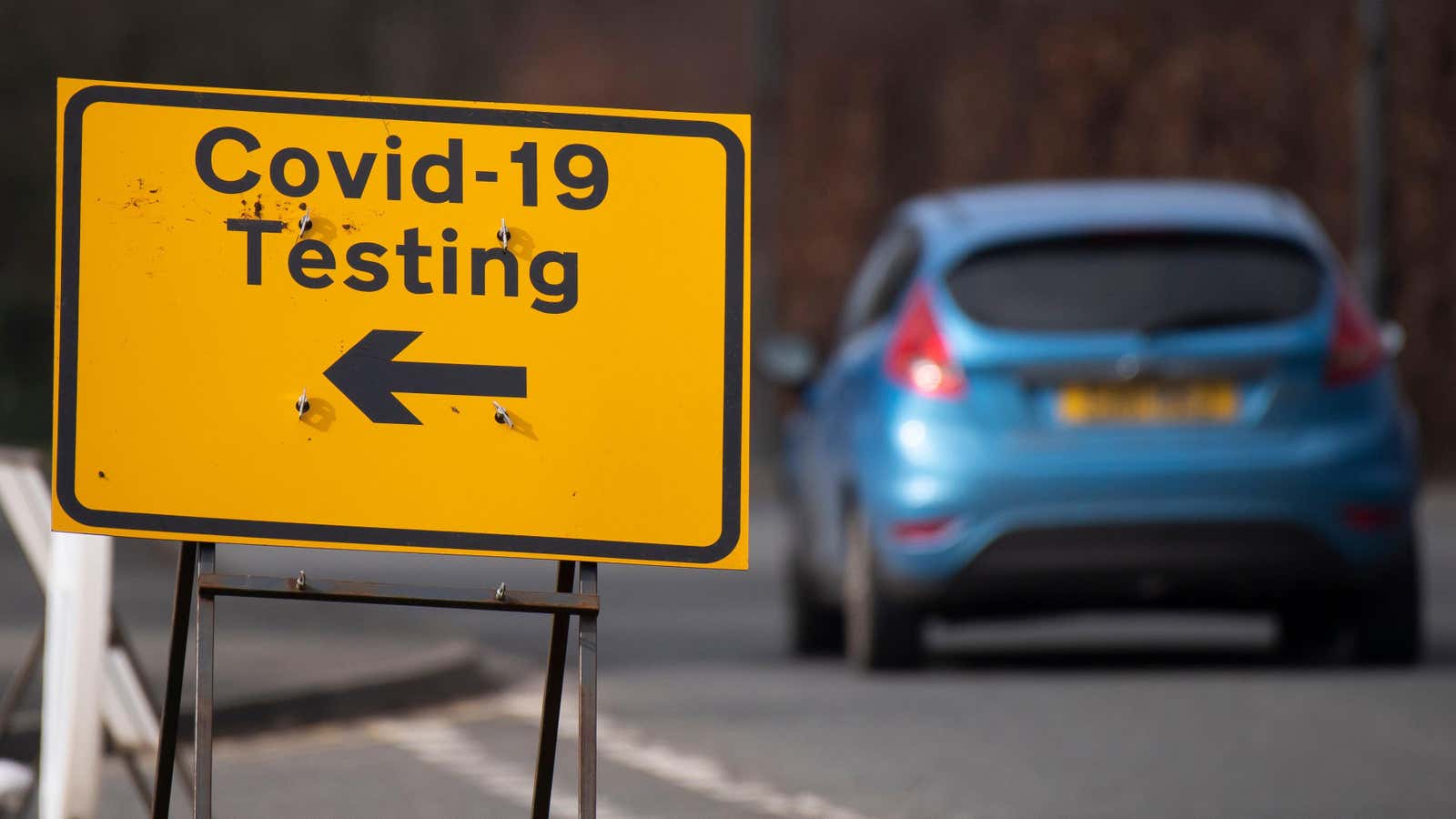How to Spot COVID Testing Scams

The Better Business Bureau issued a warning this week about the spread of COVID testing scams. Fake websites and deceitful personal testing centers are using COVID testing as an excuse to steal people’s personal and insurance information and/or get a few dollars, according to the BBB. Here are some tips on how to avoid being a victim of cons when testing for COVID.
How COVID test scams work
Scammers are reported to create legitimate-looking websites that appear to be related to local pharmacies or testing centers. When you google the testing center, one of them may appear.
In one version of the scam, the site allows you to sign up for a test. When you arrive, you will be asked to complete a form asking for personal information and your driver’s license and insurance card will be copied. The scammers will run a “test” and promise you results in a day or two, but there will never be results because the whole operation exists only to collect your personal data.
In a simpler version of the scam, consumers fill out an online form to make an appointment, often at a legitimate testing center, providing personal information and even paying a small fee. When they arrive at Walgreens or the proving ground, no recording occurs because the site is fake.
How to recognize and avoid fraudulent COVID tests
- Use only official websites for appointments: Free COVID tests are available to everyone in the United States at pharmacies and testing centers. The U.S. Department of Health and Human Services website offers a database of COVID test providers in every U.S. state and territory . Your county website probably also has a list of testing centers. You can also ask your doctor for advice.
- Avoid testing sites that charge fees: COVID tests are free, whether you go to a testing site or get a test from the government in the mail . According to the Better Business Bureau, “If someone insists that you pay for a test, especially if they claim it will cost you hundreds of dollars, it’s a scam.” However, it’s worth noting that there are some legitimate services where you pay for speed or convenience, but consider this a wake-up call and worth a closer look.
- Beware of Similar Websites : Many of these COVID-19 scams are based on fake websites that look exactly like the real ones, so make sure the site is secure and check for spelling errors or inappropriate text in the URL .
- Be careful with unwanted calls and messages . If you receive a text message, call or email out of the blue, do not share any personal information. Legitimate companies and health care providers generally do not call people without permission.
- Read the fine print: The Better Business Bureau suggests that you carefully read any agreement you are asked to sign and ask where your personal information is stored and which lab processes the results. While this is generally good advice, I don’t see why a scam test site wouldn’t just lie to you, but you might be asking a question they can’t answer and thus expose the scam.